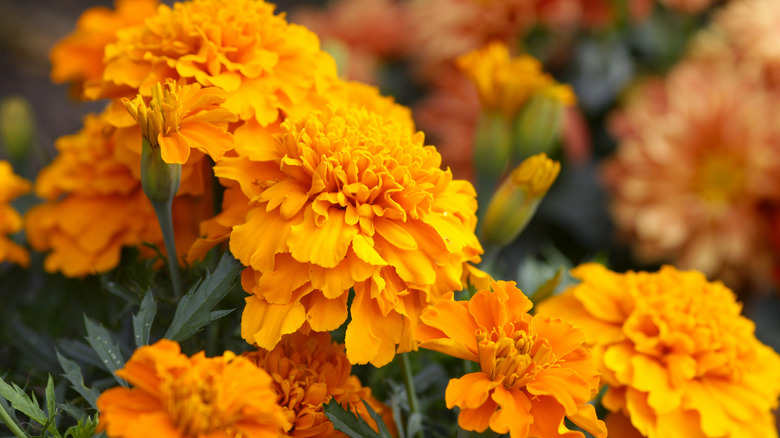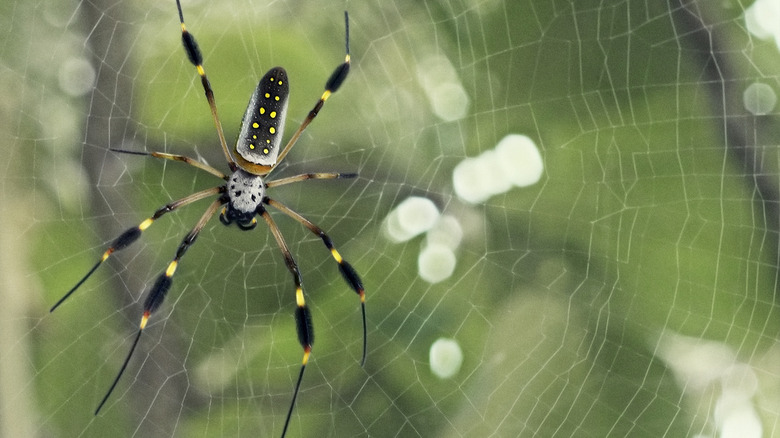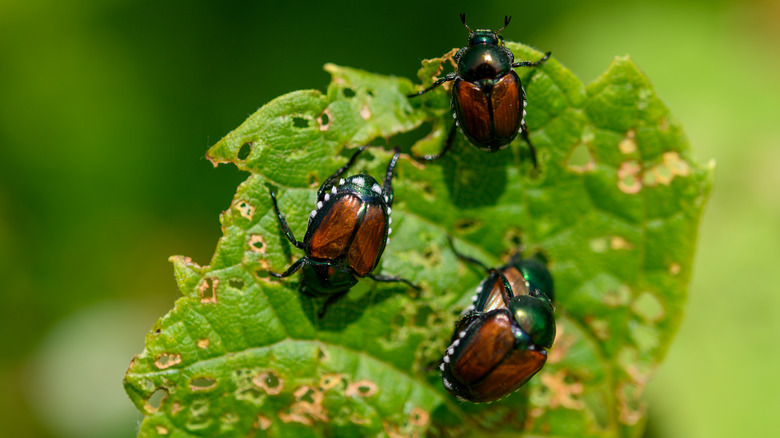Do Marigolds Really Repel Spiders? Our Entomology Expert Weighs In
Spiders definitely have a special and important place in this world, but for many humans that preferred place is way out of sight. That's why a lot of people turn to pest control services and other methods to keep yard spiders at bay. One type of plant that has long been rumored to repel spiders is the marigold, known best for its bright, beautiful blooms and generally awesome, low-maintenance attitude.
However, marigolds are not the only plant rumored to help control a spider problem. In fact, a lot of people are trying out a variety of "green" DIY methods to repel unwanted pests while protecting beneficial ones these days, explained Emma Grace Crumbley, entomologist at Mosquito Squad. Whether the plant you're considering for this purpose is citronella grass, marigolds, or something else entirely, it's important to keep expectations in check. "There is still a lot left unknown about the efficacy or truth of certain plants having insect-repellent properties," Crumbley exclusively told House Digest. "My advice to readers wanting to avoid using harsh chemicals but keep their lawn and house pest-free is to do thorough research on your control methods of choice before implementing them." Sage advice, indeed.
Where the science stands on marigolds repelling spiders
Ideally, it would be as simple as putting a beautiful marigold plant in the ground or a planter to keep unwanted spiders away. However, Emma Grace Crumbley exclusively pointed out that this strategy has yet to be proven at this point. In her review of scientific publications, articles, and university or state extension agencies, she was unable to locate any definitive evidence corroborating this long-touted claim. "In fact, marigolds are commonly attacked by spider mites, which are a desirable food source for nearby spiders to eat," she added. So it stands to reason that spiders' status as "predatory arthropods" outweighs any aversion to marigolds come lunchtime.
However, all hope is not necessarily lost. "Does this confirm that there is no basis for marigold repellency to spiders? Not necessarily," Crumbley said. "Again, there is much of science and naturally derived pest control that has yet to be explored or documented. But in the meantime, I would not rely solely on marigolds to prevent spiders from harboring in your garden," she explained.
Do these chores to limit spider presence
While marigolds may or may not affect the spider population, they're lovely to look at, so planting marigolds is hardly a waste of time. But there are other preventative actions you can take according to Emma Grace Crumbley. The first step is to reduce food sources — namely, the insects spiders seek out for nourishment. "By removing these insects, or decreasing their presence, you will notice less spiders in the area," Crumbley exclusively explained to House Digest, noting that this could require the skills of a professional pest control service to get the job done thoroughly.
It's also important to eliminate harborage areas where spiders can set up shop. To do this, knock down any existing spider webs. "This can be done with a towel on a stick or a web brush, whatever is available that will remove the webs and disrupt the spider's harborage," Crumbley said. The other way to keep spiders from finding great hideouts is to maintain the lawn. "Reducing clutter, debris, and overgrown vegetation will limit the areas spiders can use to hide," she explained.
All that said, it's important not to take spider elimination too far, as they are so good at controlling other garden pests like Japanese beetles, caterpillars, and more, said Crumbley. "The only scenario I would absolutely recommend spider control would be for black widow or brown recluse infestations," she explained. "These spiders are medically important and should be controlled for by a pest control professional."


